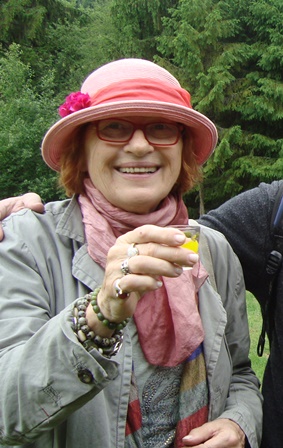|

The present selection opens with the concluding sequence from Biele rukopisy, the nine poems of Dormi (from the Italian ‘you sleep’) and continues with the greater part of The Disappearance of Angels. At the core of Eternal Traffic are a love affair and a consciousness both wounded and inspired by childhood. Mila’s work is suffused with the understanding that human beings do not discard meanings as their lives continue, but accumulate and transform them as they interact with the world.
Dormi is a rapt contemplation of a male lover almost a paradisal experience in which“everything answers / Expectation; red and white flowers; quince and apple trees” and “With proof of sublime experience. / Being two. / Between.” It is followed by a bridge passage of fragmentary poems where both an emotional and metaphysical tension becomes evident: “Everything is just one high and intolerable voice.” The paradisal gives way to a series of fragments where love vanishes and childhood terrors are recalled. In ‘Fragments of a Vanishing Childhood Terror(Speech)’ recall that Mila’s father was imprisoned in the early 1950s for economic sabotage, a crime created by the Communist regime, to discipline awkward individuals by giving them economic targets impossible to fulfill. Childhood memories continue and focus on the difficulties of speech, including the difficulties of having to speak cautiously outside one’s family and the difficulties of being bilingual (Mila was brought speaking both Slovak and Hungarian).
Translucency is the central sequence here characteristic of Mila’s major collections. The third part narrates an accident when a deer is killed by the car in which Mila is riding. It signals the beginning of the end of a relationship: I wanted to say: I'm tired / I am weary to death from the death of an unknown /animal, I was scared stiff / and love was unrecognizable. It explores the widening rift between lovers with all the backtracking and reflections over a gradually deepening unhappiness: So you live in the heart of light. You try to submit: / sometimes it looks like happiness. Close to the end of the sequence there is an accusation and an identification with the killed deer: You give your paintings: an idea without guilt: the bed of the stream / the killed doe: me
Translucency is a major poetic achievement, but it is equalled by the sequence that succeeds it, Plant Room I to IX. Plant Room V is possibly one of the loveliest poems written in Europe this century. A traditional trope is reworked into a marvellous image of the perplexities of love: If I wanted, I would have leaned out of a window anywhere / to the wounded naked stars I woke up to the mirror which would / hold nothing and the man would smile forever with a barely noticeable / movement he’d invite me: he'd call me with the name of a star name of a dream / what would I (have then done) (NOW do)?
Mila Haugová writes of the intricacies of human emotions, their revelations and their concealments with an insight very few other poets have ever approached.
JamesSutherland-Smith, Prešov, September 2019
|


